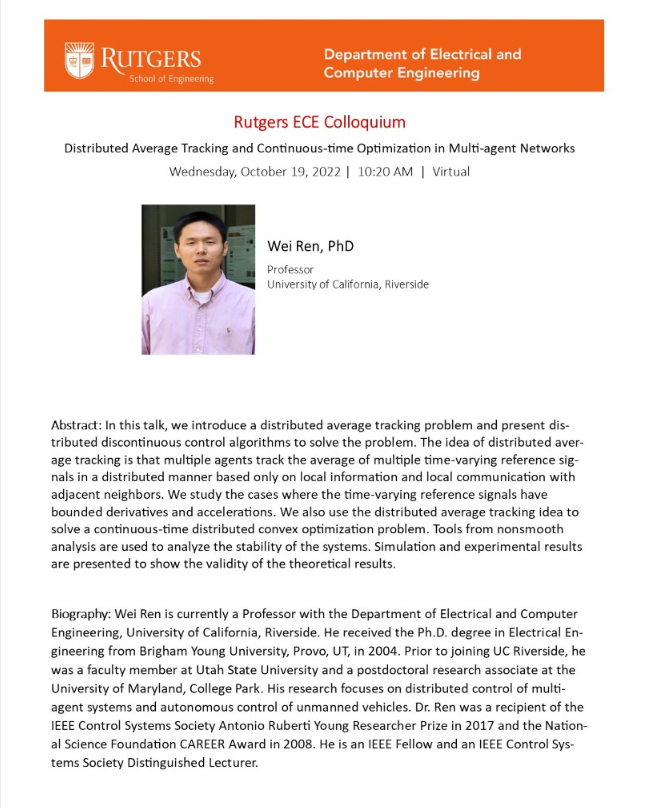ECE Colloquium - Dr. Sven Dietrich, City University of New York
This colloquium is in person. Held at CAIT Auditorium.

ECE Colloquium - Dr. Wei Ren, University of California, Riverside

This Colloquium will be online via Zoom
You're Invited !
ECE faculty Dario Pompili promoted to Full Professor
Dario Pompili has been promoted to Full Professor in the Department of Electrical and Computing Engineering in the School of Engineering, effective July 1, 2019. As Dario will continue to build his career at Rutgers, our warmest thanks for what he does at Rutgers and we look forward to his continuous excellent contributions to the ECE department and the School of Engineering.
Congratulations, Dario!
ECE Colloquium - Nathan Lazarus, University of Delaware
Please join us in SEC 117 for a Colloquium with Nathan Lazarus

Efficient AI Seminar: "Visual Computing: A Horizontal Approach" by Dr. Yuhao Zhu, University of Rochester
ECE Colloquium - Dr. Colleen Josephson, UC Santa Cruz
ECE Graduate students on the Fall 2022 roster for ECE Colloquium may attend this talk to contribute to their Colloquium attendance requirement but are not required to attend. This talk will be held in-person and Colloquium is scheduled to be held remotely for this semester.

Efficient AI Seminar: Prof. Jie Gu, Northwestern University
ECE Professor Shriram Ramanathan wins AFOSR grant
This project is related to understanding the fundamental mechanisms of plasticity in animal brains and their emulation in electronic devices. Longer term goal will be to advance physical models based on bio-plausible plasticity that could be useful to AI algorithms.
Rutgers ECE Ice Cream Social




